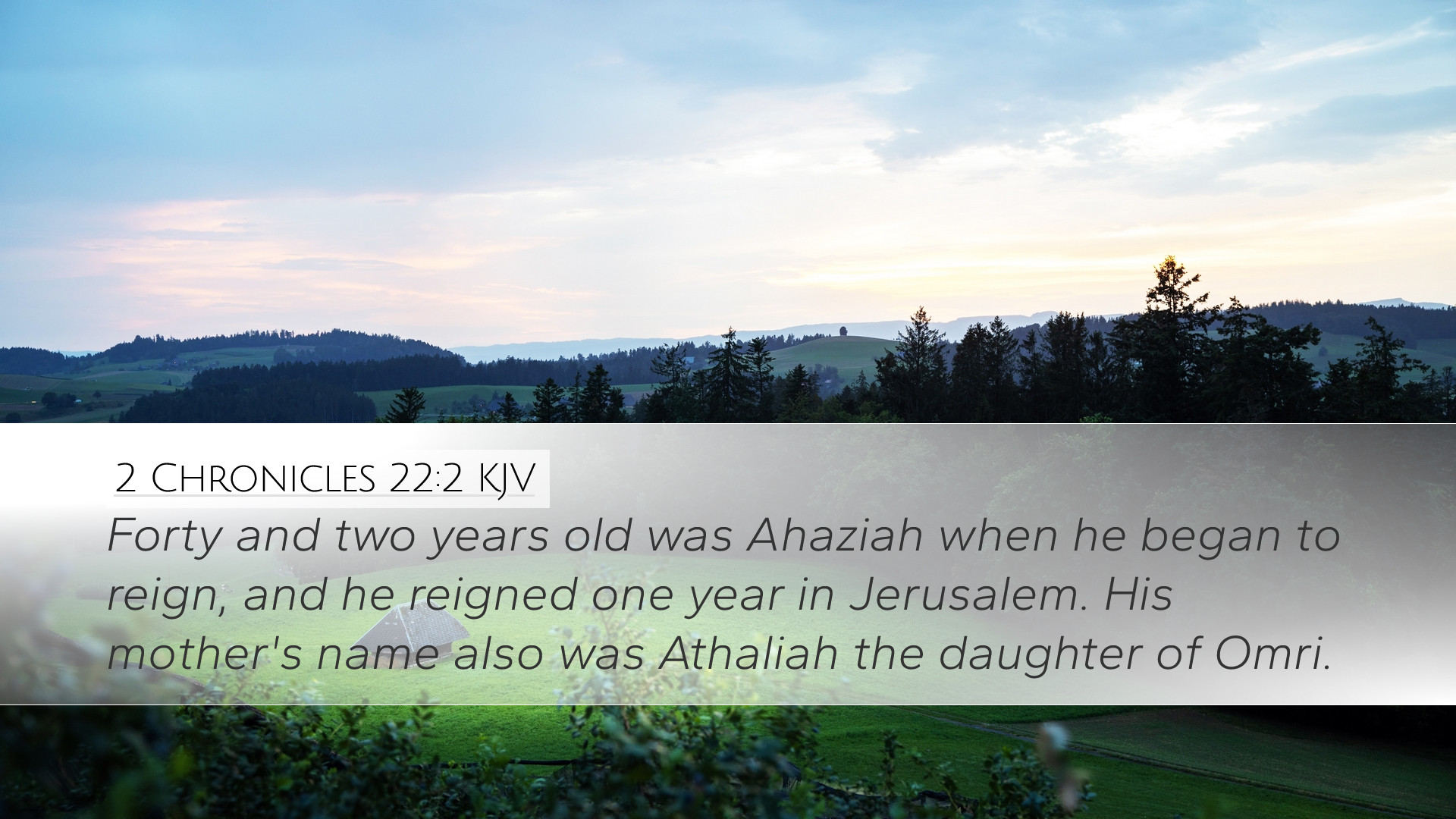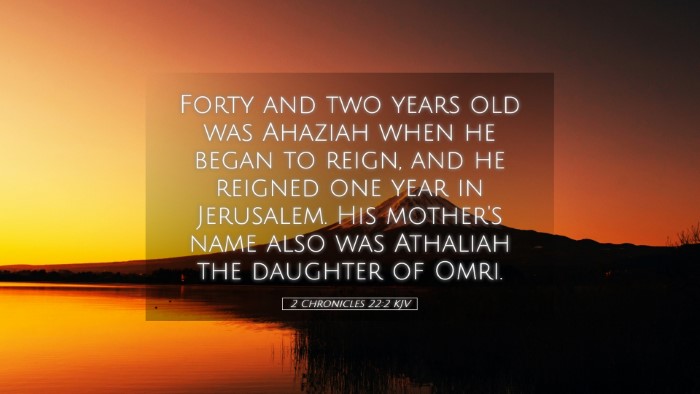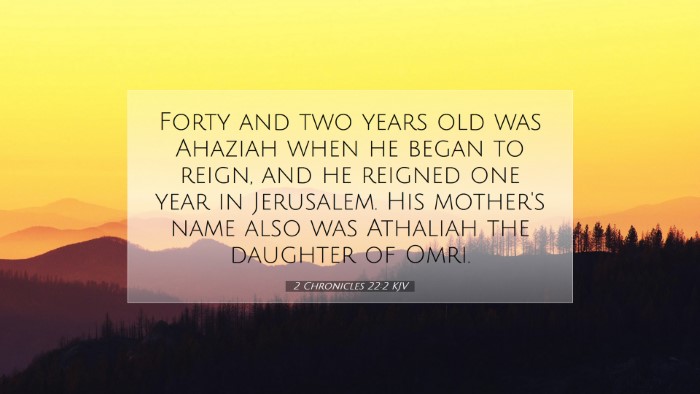Commentary on 2 Chronicles 22:2
Bible Verse: "Forty and two years old was Ahaziah when he began to reign, and he reigned one year in Jerusalem. His mother's name also was Athaliah the daughter of Omri." (2 Chronicles 22:2)
Introduction
This verse presents a concise yet critical insight into the reign of Ahaziah, the king of Judah. It provides essential details about his age, the duration of his reign, and the identity of his mother, Athaliah. Understanding this verse requires a deep exploration of its historical context and implications.
Historical Context
The context of 2 Chronicles requires familiarity with the history of Judah and Israel during this period. Ahaziah's reign was notably influenced by the preceding rules of the house of Ahab in Israel through his mother, Athaliah. Hence, an examination of the political and spiritual climate of both kingdoms is crucial.
Ahaziah’s Background
- Age and Reign: At forty-two years old, Ahaziah ascended to the throne. The intricacies of his age are significant, as they indicate the period in which he lived and points toward the probable influences upon his rule.
- Duration: His reign lasted only one year, a reflection of the turmoil and danger of the times in which he ruled. This brevity of rule signals divine judgment and the transient nature of authority among the kings of Judah.
Athaliah's Influence
Athaliah, Ahaziah's mother, significantly shaped his reign. Being a daughter of Omri, the founder of the dynasty of Israel, she brought with her the idolatries and policies of the northern kingdom.
Her role should not be underestimated; Athaliah's impact is evident in the context of her son's reign and the introduction of foreign influences in Judah, which contrasted sharply with its covenantal commitments.
Theological Implications
Examining Ahaziah’s brief reign through a theological lens reveals several pertinent themes.
The Sovereignty of God
Despite Ahaziah’s royal lineage, his short reign speaks volumes about the sovereignty of God over kings and nations. The divine narrative in the Scriptures consistently demonstrates that human plans and authority ultimately submit to God’s will.
Ahaziah’s fate serves as a reminder of the transient nature of earthly power in comparison to the eternal and unshakeable reign of God.
Judgment and Consequences
Ahaziah's rule is indicative of the consequences of turning away from God's statutes, as seen in his mother’s influence. The brevity of his reign can be viewed as a divine judgment against both his leadership and that of his forebears, who engaged in practices contrary to God’s commands.
Identity and Legacy
Ahaziah’s identity is tied closely to his mother, Athaliah. The text hints at issues of legitimacy and authenticity in leadership. True strength in leadership in biblical terms hinges upon one’s adherence to God’s covenant, which Ahaziah ultimately did not possess.
Comparative Analysis
In both 2 Kings 8:26 and 2 Chronicles 22:2, there is mention of Ahaziah's age and the influence of his mother. Notably, the Chronicles account emphasizes his mother's identity while offering a more moralistic interpretation of events compared to the Kings narrative, which focuses more on political lineage and succession.
Conclusion
2 Chronicles 22:2 encapsulates a significant moment in the history of Judah, emphasizing the themes of divine sovereignty, judgment, and the chronicling of identities shaped by familial legacies. It challenges modern readers, particularly pastors and theologians, to reflect on the implications of influence, the character of leadership, and the ever-relevant question of fidelity to God’s commandments.
As leaders navigate the complexities of their roles today, the brief and troubled reign of Ahaziah serves as both a cautionary tale and a theological instruction about the necessity of grounding authority in divine truth.


